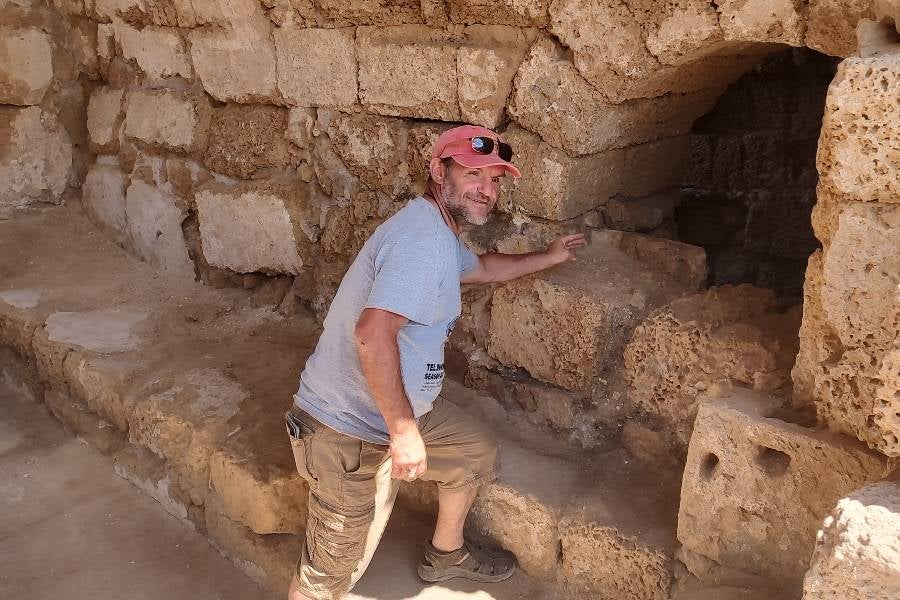Graduation Spotlight: Smith digs into the past to build a future
Kim Chaudoin |

Nick Smith on an excavation in Israel.
For Nick Smith, a U.S. Army veteran from Clarksville, Tennessee, the path to earning a Master of Arts in archaeology and biblical studies at Lipscomb University was anything but ordinary. It was deeply rooted in a passion for uncovering history and living out faith through scholarship.
Smith, who served 10 years in the Army as an AH-64D Longbow Apache Attack Helicopter Crew Chief, brings a unique perspective to the field. His military career took him across the globe, including a year in Korea and three deployments to Afghanistan, before being medically retired at Fort Sam Houston in San Antonio, Texas.
“I’ve always been interested in archaeology,” said Smith. “And I loved that Lipscomb was a Christian school. I love learning about history and the people that made it happen. Archaeology helps put the pieces of the unspoken and unwritten past together with the historical record we do know.”
That passion, combined with the university’s Christ-centered, led Smith to pursue his graduate studies through Lipscomb’s Lanier Center for Archaeology, one of the few programs in the country that pairs rigorous academic training with a grounding in Christian faith.
It’s been amazing. I’ve loved all my classes and learned so much from Dr. Davis, Dr. Ortiz and Dr. Janzen. I’ve been tested and expanded my known limits so I will continue to do so moving forward. — Nick Smith
His time at Lipscomb included hands-on field work at Tel Burna, an archaeological dig site in Israel believed to be the ancient city of Libnah. In 2023, Smith helped excavate Area G, the gate area of the complex.
“The dig was incredibly rewarding. I really felt like a part of the overall team,” said Smith. “It reminded me of being deployed. It was a very international crew with people from different walks of life coming together for a common goal.”
That shared purpose resonated with Smith’s military background and deepened his appreciation for community-driven discovery.
He credits much of his academic growth to the mentorship of Lanier Center faculty Steve Ortiz, director; Tom Davis, associate director and professor; and Mark Janzen, associate professor.
“It’s been amazing. I’ve loved all my classes and learned so much from Dr. Davis, Dr. Ortiz and Dr. Janzen,” he said. “I’ve been tested and expanded my known limits so I will continue to do so moving forward.”
Smith said his studies have had a profound impact on his spiritual life, too.
“It’s made my faith more alive for me and grounded in the real world of history,” he reflected. “It’s one thing to read Scripture, but it’s another to walk the land, to touch the artifacts. It’s grounding in a way that’s hard to explain until you’ve done it.”
As he celebrates this milestone, Smith admits the emotions are mixed.
“It feels amazing and unbelievable simultaneously,” he said. “I’m also sad to see it end so soon.”
Looking ahead, Smith is exploring a future in cultural resource management (CRM) or potential work with the government. While the next step is still coming into focus, he feels equipped for whatever comes next.
“Go Bisons!” he added with a smile. “I wouldn’t have been able to do this without the support of my loving family, my mom and dad and my two kids, John and Cassie.”